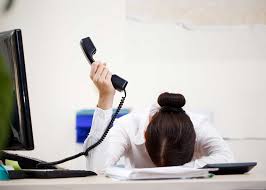歡迎您加入 英文/知識/交友 文章請點選欄位
周四 (6/21)1.反轉 糟糕的一天 2.沉迷電玩 列為精神病
上午11:27
No comments
板橋站區文化路一段421巷11弄1號 (陽光甜味咖啡館)
埔捷運1號出口 旁邊7-11巷子進入20公尺 看到夏朵美髮左轉 PM 7:00-9:30


反轉 糟糕的一天
5 Ways to Bounce Back From a Bad Day at Work huffingtonpost
1. Don’t Take It Personally
Bad days at work can be caused by a number of things — but if your bad day was set off by someone else’s negativity, don’t take it personally. If someone else was angry, upset, stressed. frustrated, or just plain mean, it’s important that you not internalize their actions or behavior. Don’t bottle up how a bad day made you feel. Communicating how you feel to someone else can help you work through how you’re feeling, and it may also help to get feedback and perspective from an outsider.
Coach Christine Kane has a great set of tips you can use to stop taking things personally.
2. Shake It Off and Don’t Take It Home
When work sucks, it’s all too easy to bring our stress and unhappiness home with us. To shake off a bad day, leave work at work. Try to establish an end-of-the-workday routine that helps signal the official end of the day. That way, when things don’t go so great, your mind still gets to process that work is over — and now it’s time to go home, relax, and do something that makes you happy.
Speaking of, another way you can bounce back is to....
3. Do Something That Makes You Feel Great!
Put an end to your bad day by seeking out things you know make you feel empowered, confident, and happy. That might mean doing a yoga routine when you get home. Maybe you can grab your favorite book and a glass of red wine and treat yourself to a quiet evening in. Or if you’re extroverted, you may get your energy back by taking someone on a coffee date.
Just make sure you engage in healthy habits. You won’t bounce back from a bad day if you overindulge in food or alcohol, and having an hours-long TV binge likely won’t make you feel better. You need to bring yourself back up — not sedate yourself with activities that keep you sedentary and disengaged.
4. Vent or Rant if You Need To
And of course, sometimes you just need to vent and rant. That’s okay! Get it all out, but put a time limit on the complaint session. Moan and whine for 10 minutes. Then be done, move on, and do something that makes you happy.
5. Evaluate What Happened
Hopefully, one or more of these strategies can help you bounce back after a bad day at work. But before you move on and put everything behind you, take a moment to reflect on what didn’t go so great. If you can evaluate what went wrong, you can better understand how to avoid doing the same thing in the future.
This will help you be proactive, rather than reactive — and you may be able to prevent a bad day from derailing your week before it even happens.
沉迷電玩 列為精神病
Gaming addiction classified as disorder by WHO BBC
Gaming addiction is to be listed as a mental health condition for the first time by the World Health Organization.
Its 11th International Classification of Diseases (ICD) will include the condition "gaming disorder".
The draft document describes it as a pattern of persistent or recurrent gaming behaviour so severe that it takes "precedence over other life interests".
Some countries had already identified it as a major public health issue.
Many, including the UK, have private addiction clinics to "treat" the condition.
The last version of the ICD was completed in 1992, with the new guide due to be published in 2018.
The guide contains codes for diseases, signs and symptoms and is used by doctors and researchers to track and diagnose disease.
It will suggest that abnormal gaming behaviour should be in evidence over a period of at least 12 months "for a diagnosis to be assigned" but added that period might be shortened "if symptoms are severe".
Dr Richard Graham, lead technology addiction specialist at the Nightingale Hospital in London, welcomed the decision to recognise the condition.
"It is significant because it creates the opportunity for more specialised services. It puts it on the map as something to take seriously."
But he added that he would have sympathy for those who do not think the condition should be medicalised.
"It could lead to confused parents whose children are just enthusiastic gamers."
He said he sees about 50 new cases of digital addiction each year and his criteria is based on whether the activity is affecting basic things such as sleep, eating, socialising and education.
He said one question he asked himself was: "Is the addiction taking up neurological real-estate, dominating thinking and preoccupation?"
Many psychiatrists refer to the Diagnostic and Statistical Manual of Mental Disorders (DSM), the fifth edition of which was published in 2013.
Lots of countries are grappling with the issue and in South Korea the government has introduced a law banning access for children under 16 from online games between midnight and 06:00.
In Japan, players are alerted if they spend more than a certain amount of time each month playing games and in China, internet giant Tencent has limited the hours that children can play its most popular games.
訂閱:
張貼留言 (Atom)


















0 意見:
張貼留言